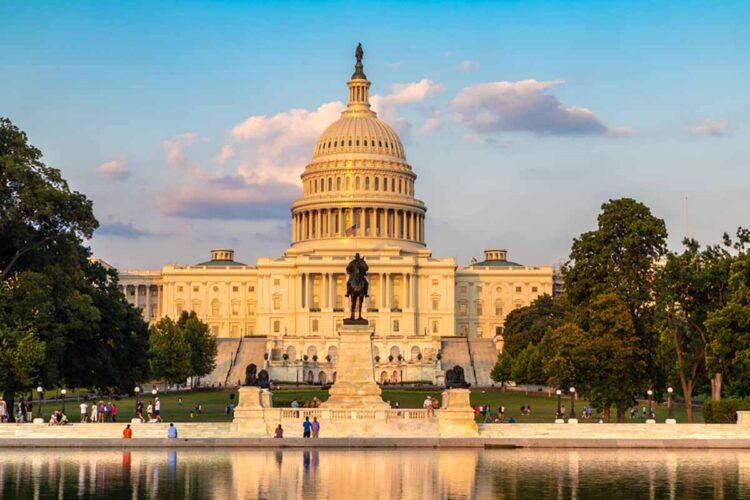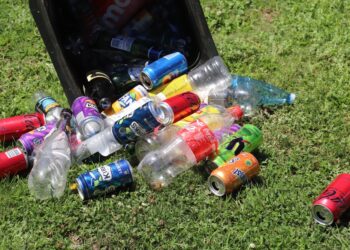Two members of Congress will revive the Break Free From Plastic Pollution Act, which includes a national container deposit system and other sweeping changes. Representatives from the plastics industry have countered the push.
According to a March 22 press release from Rep. Alan Lowenthal, D-Calif., the 2021 bill will be introduced on Thursday, March 25. Multiple virtual events are planned this week to discuss the bill.
Last year, the Break Free From Plastic Pollution Act was sponsored by Sen. Tom Udall, D-N.M., and Lowenthal. The bill proposed nationwide extended producer responsibility (EPR) for packaging, minimum-recycled-content mandates for certain products, a national container deposit, single-use plastic product bans, a three-year pause on new virgin plastics production facilities, and more.
The revived bill will be introduced this week by Lowenthal and Sen. Jeff Merkley, D-Ore. During a virtual event last week, Merkley laid out numerous harmful effects of plastic pollution and said the new act is “a comprehensive national strategy to address this enormous challenge.” He described some of the bill’s key components.
“It bans non-recyclable single-use plastic products; it creates a national bottle bill, like we have in Oregon, to provide refunds on bottles to incentivize increased recycling; it pauses new plastic production facilities, which are overwhelmingly constructed in low-income communities of color; and makes sure there are enhanced protections in place for fence line and frontline communities,” Merkley said. “And it requires big corporations to take responsibility for the pollution that their plastic creates, by designing and financing waste and recycling programs.”
Merkley also touched on the side-effect benefits of greater U.S. investment in recycling systems.
“By doing so, we can not only save ourselves from all the harm that’s caused by plastic pollution, but we can also create good-paying American jobs by spurring massive investments in domestic recycling and composting infrastructure,” Merkley said.
Last year’s bill did not progress beyond referral to a House of Representatives committee. Its backers during the summer released a guide for how components of the bill could be rolled out at the local and state level.
Critics quickly condemn bill
The American Chemistry Council (ACC) hosted a press call on March 23, featuring a number of plastics industry representatives expressing concern with the Break Free From Plastic Pollution act. Joshua Baca, vice president of the plastics division at ACC, described the proposal as a “misguided and harmful piece of legislation.”
“Plastic in the environment is never acceptable, but after a careful analysis of the legislation we have concluded it won’t end plastic waste but rather end the American plastics industry by restricting the production of modern and innovative plastic materials,” Baca said.
He said ACC is in favor of a “shared responsibility model” that would levy fees on packaging to support recycling infrastructure and education.
The organization promotes chemical recycling technologies, which Baca described as the “most effective tool at our disposal to capture more plastic waste and revolutionize how we use and reuse our plastic materials.” ACC also supports greater recycled content inclusion in products and a national recycling standard, he said.
Also on the press call, Bob Powell, CEO of chemical recycling firm Brightmark, pointed to his company’s investments in pyrolysis technologies to process mixed plastic waste into feedstocks for new plastic. He said these types of projects can help solve the plastic waste problem without ending the use of plastic.
“We simply don’t believe it is a mutually exclusive choice to think, either plastics or the environment,” Powell said.




























